Navigating your path to excellence
EdTech Management Consultant
The Brain Behind Management System Excellence

trusted over 1500+ client accorss country

1500+ Client
Client From various industries across India and South East Asia
2500+ Project
Successfully completed projects for all clients
Quick Contact
About Us
Navigating the Complexities of Management Systems So You Don’t Have To
At EdTech Management Consultant, we specialize in helping organizations enhance their management systems. Our services include auditing, certification, and advisory solutions tailored to your needs. With over 36 years of experience and experts from various fields, we provide customized solutions that ensure compliance, risk management, and continuous improvement. Whether you need internal audits, certifications, or expert training, we’re here to support your journey toward excellence.
Empowering Your Growth with Trusted Expertise.

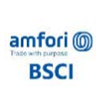


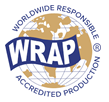

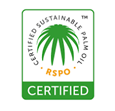


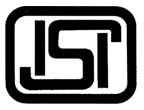


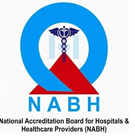

Why us ?
Expert consulting for management excellence.
We offer customized solutions that enhance operational efficiency, reduce risks, and improve overall system performance.
- Tailored Solutions
- Quality Assurance
- Risk Reduction
- Maximized Efficiency
- Certified Experts
- Proven Accuracy

our services
What We Provide
We offer tailored management solutions designed to improve performance. From audits to certifications, we ensure compliance, risk management, and continuous growth. Our expert-led approach guarantees impactful results for your organization.
ISO planing
Our team of experts works with organizations to develop ISO-compliant management systems that enhance performance and ensure certification to standards such as ISO 9001, ISO 14001, ISO 45001, and more.
EDTECH Preparation
We provide complete preparation services for implementing management systems, ensuring all documentation and processes are aligned with international standards like ISO, HACCP, and FSSC.
EDTECH Compliance
We help businesses stay compliant with ISO standards and regulatory requirements, ensuring ongoing certification and avoiding costly non-conformances.
System Development
We assist clients in establishing and transitioning to new management systems, providing documentation support and internal auditor training for continuous improvement
International EDTECH
Our experts specialize in international management system standards, helping businesses operate seamlessly across borders with certifications recognized globally.
Business EDTECH Services
We offer comprehensive management system services for businesses, including auditing, advisory, and training. Our team ensures tailored solutions for system integration, compliance, and efficiency.



company's vision
Your management system success is our top priority.
We are committed to enhancing your organizational performance through tailored management solutions
01
Empowering our clients with knowledge
We provide expert guidance to help clients develop robust management systems, ensuring sustainable growth and certification success.
02
Trusted management advisor for businesses of all sizes
We deliver customized consulting services, offering solutions for small businesses to large enterprises, ensuring they meet international standards effectively.
Your partner comprehensive Management Solutions
We provide tailored consulting services for business growth. Our experts ensure seamless management system enhancements across industries
FAQs
Frequently Asked Question.
Explore common queries and learn more about how our solutions can elevate your business.
We provide clear guidance and solutions for business growth, operational efficiency, and compliance. Engage with our expert team for answers tailored to your unique challenges.
When is the best time to start business improvement?
Strategic planning should begin at the start of each fiscal year. Early assessment allows you to align goals and drive growth efficiently
What documents do I need to streamline operations?
Gather management reports, performance reviews, and compliance records. Proper documentation ensures better decision-making and execution.
What should I do if I face operational challenges?
Address issues quickly by evaluating your current systems. Engaging with experts ensures efficient resolution and process enhancement
Latest project
Revolutionizing EdTech Solutions for Seamless Success.
Delivering innovative management systems to simplify processes and drive excellence
our blog
latest blog & article
tay updated with industry insights and expert opinions. Discover how innovative strategies and management solutions can transform your business performance.
Slots Welcome Bonus No Deposit
Slots Welcome Bonus No Deposit You may not receive any payouts (this is more likely,
All Station Casinos In Canada
All Station Casinos In Canada If you enjoyed Barcrest’s Super Star Turns slot, a new
Canada Accepted Online Casino No Deposit Bonus Codes
Canada Accepted Online Casino No Deposit Bonus Codes However, there are many other ways to
Roulette Sites Online
Roulette Sites Online Does this casino have any slot machines that offer progressive jackpots? Therefore,
American Roulette The Making
American Roulette The Making The expanding universe of online gambling in Canada The welcome bonus
Bet365 American Roulette Betting Canada
Bet365 American Roulette Betting Canada Pocket Aces can help form a strong preflop hand in





